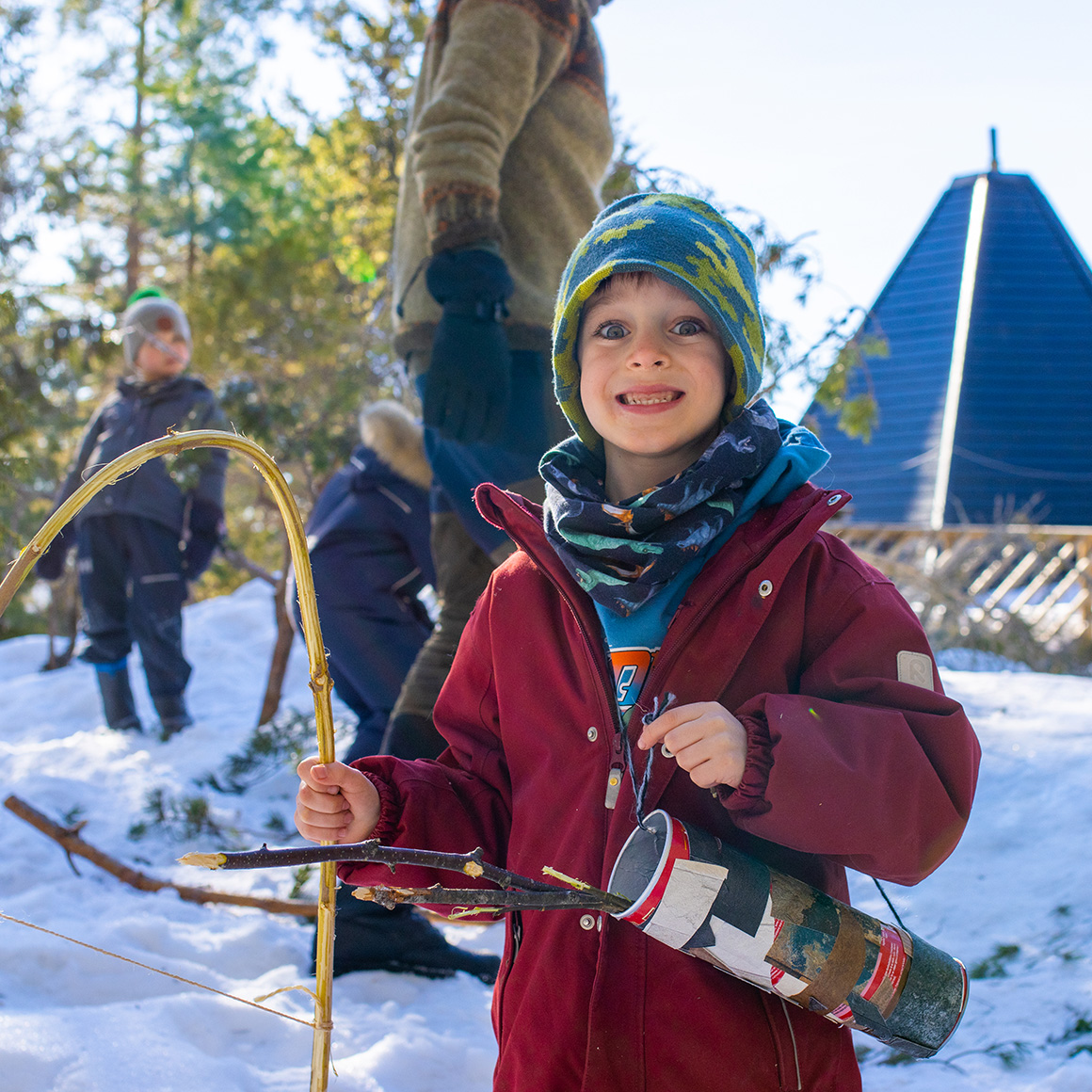
Outdoor Education and Experiential Learning in Schools and Kindergartens
Vestfold - Full time
In this programme you will get to learn more about Norwegian outdoor culture and practical skills of outdoor life, experience outdoor life in a variety of environments in the local area of Vestfold and its surroundings: the coastline, the forests and the lakes.
-
Apply from: 01. Sep 2024
Study facts
-
Campus: Vestfold -
Study level: Exchange programmes, bachelor level -
Progression of study: Full time -
Start up: Spring 2025 -
Teaching model: Campus -
Credits: 30 -
Charge: No tuition fee. -
Closing dates: 15.10.2024 -
Semesters: 1 -
Teaching Language: English
Why study Outdoor Education and Experiential Learning?
Do you want to learn more about how to use the local environment of schools and kindergartens in education? Would you like to participate in learning activities connected to our local history and craftsmanship, learn methods of experiential based learning? Would you like to experience basic Nordic outdoor traditions, develop ways of teaching outdoors together with students from different cultural backgrounds? Are you interested in learning for sustainable development, ecology and ecophilosophy in an educational context? Come to Norway and study our course in Outdoor Education and experiential Learning! The programme starts in the beginning of February.
Content
In the two modules of this study, outdoor activities and experiential learning are intertwined with theoretical aspects on outdoor education and place-based learning. Active participation individually and in groups in outdoor activities are essential. We work with practical skills and activities, storytelling and environmental learning. A variation of informal assessments and documentation of learning processes includes projects, individual written texts, oral presentations, storytelling, You will work with photography and graphics, video, animation and hypertexts.
In both modules there will be a focus on multimodal presentations and documentation. Through project work, students will, in addition to verbal text, be using various (digital) media forms to inform and to describe. On excursions and in classroom, activities will include photography and graphics, video, animation and hypertext.
We will be offering these two modules:
- Sense of place (15 ECTS)
- Experiential learning; field biology, ecology and nature philosophy (15 ECTS)
There will be a fee for the excursion in Nordic skiing. Charge: 3500,- NOK.
Study Plan
A study plan describes the content, structure and organization of a study programme. To each study plan there is a set of subject plans that describe the different subjects. In the subject plan you will also find a reading list. Below you will find a study model that shows you which subjects that are taught each term. In the study model you'll also find links to each subject plan.
Latest published study plan for outdoor education and experiential learning in schools and kindergartens
Admission requirements
The programme is open to international exchange students studying at one of USN's bilateral partner institutions. Exchange students at the bachelor-level must have completed at least 60 ECTS or equivalent within the relevant study field, and be officially nominated by their home university in order to apply. Admission to the programme requires a good command of the English language, both spoken and written. An English proficiency equivalent to B2 (Cambridge) level is recommended.
All applicants should upload a letter of motivation explaining their interest in the programme. The letter should include reflections on one’s own pedagogical view related to outdoor education and the outdoor environment as a place for learning and teaching. The letter should be about a half to one page long.


